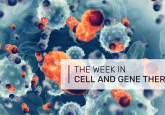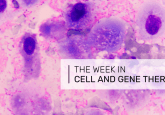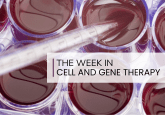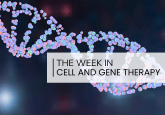Cell therapy weekly: Funding supports remyelination therapy for multiple sclerosis

This week: Progentos Therapeutics (MA, USA) secured US$65 million in Series A funding, Multiply Labs (CA, USA) and Portal Biotechnologies (MA, USA) announced a collaboration to automate cell engineering and Indapta Therapeutics (WA, USA) secured a US$4.5 million grant to continue development of a novel allogeneic natural killer cell therapy for advanced non-Hodgkin’s lymphoma and multiple myeloma.
The news highlights:
- US$65 million for multiple sclerosis regenerative therapy
- Collaboration to automate cell engineering
- Novel natural killer cell therapy for cancer indications
US$65 million for multiple sclerosis regenerative therapy
Progentos Therapeutics, a biotech company developing a novel regenerative medicine for multiple sclerosis (MS), has launched after securing US$65 million in Series A funding. The company’s approach utilizes first-in-class small molecules designed to stimulate oligodendrocyte progenitor cells to remyelinate axons.
Progentos will use the funding to progress its MS program to proof-of-concept studies and broaden its pipeline to include additional degenerative diseases.
“While there are many treatments that are highly effective at slowing the progression of disease, there is a significant unmet need for new approaches that can regenerate myelin and restore function for patients with MS,” said CEO of Progentos, Chris Loose “I am thrilled with the support received from this group of investors and appreciate their recognition of the need to advance the current standard of care for the millions of individuals impacted by MS and other demyelinating diseases.”
Collaboration to automate cell engineering
Multiply Labs’ robotic automation technology will be combined with Portal Biotechnologies’ cell engineering platform in a collaboration between the two companies that aims to advance cell therapy development and manufacturing.
The companies plan to develop a ‘robot mechanoporation cartridge’ that will enable Multiply Labs’ robotic systems to operate Portal’s mechanoporation technology, automating the intracellular delivery of genetic cargo to improve the efficiency, throughput and speed of cell engineering.
Armon Sharei, Founder and CEO of Portal, commented: “Cell therapy manufacturing infrastructure and its associated costs have severely limited the accessibility of cell therapies. Multiply Labs’ automation strategy has the potential to modularize and simplify cell therapy production to ensure greater patient impact. We are very excited to contribute to the Multiply Labs team’s vision by integrating our next generation cell engineering approach with their robotics.”
Novel natural killer cell therapy for cancer indications
The Cancer Prevention and Research Institute of Texas (CPRIT; TX, USA) has awarded a research grant of US$4.5 million to Indapta Therapeutics to support ongoing clinical development of the company’s allogeneic natural killer (NK) cell therapy for advanced non-Hodgkin’s lymphoma and multiple myeloma.
The NK cell therapy, IDP-023, employs a subset of naturally occurring NK cells called g-NK cells that are expanded from healthy donors. These g-NK cells arise from epigenetic changes triggered by exposure to cytomegalovirus and possess multiple mechanisms to kill target cells without requiring genetic engineering.
“We greatly appreciate that CPRIT has recognized the promise of Indapta’s allogeneic g-NK cell therapy for the treatment of advanced cancer patients,” said Mark Frohlich, CEO of Indapta. “We are highly encouraged to be seeing early evidence of clinical activity in the safety run-in portion of the trial at the lowest cell dose and without the addition of a monoclonal antibody. We look forward to using the CPRIT funds to treat additional patients in order to reach clinical proof-of-concept in our Phase I dose escalation trial.”





